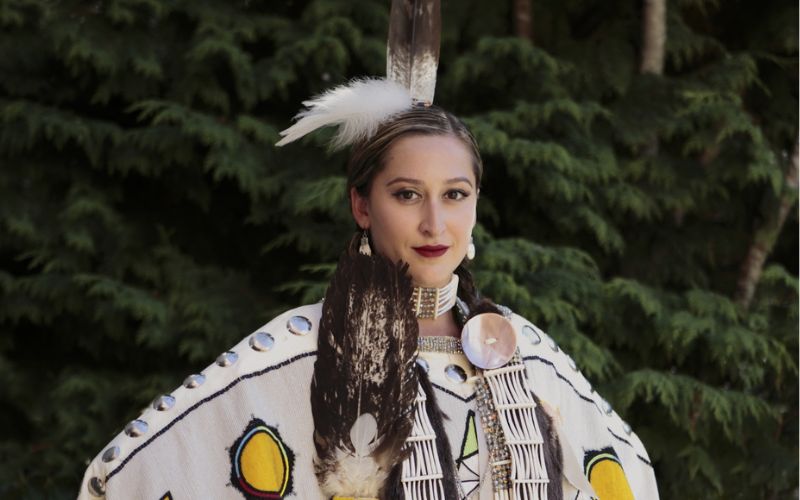
- Details
- By Native News Online Staff
Bree R Black Horse (Seminole Nation of Oklahoma) has joined the United States Attorney’s Office for the Eastern District of Washington as an Assistant United States Attorney dedicated to prosecuting cases involving Missing and Murdered Indigenous People (MMIP).
Black Horse will work out of the Yakima Office and will serve throughout the Northwest Region, including Washington, Oregon, Montana, Idaho and California.
Before joining the U.S. Attorney’s Office, Black Horse practiced law at the firm of Kilpatrick Townsend, advising Tribal governments and enterprises on all aspects of federal, state, and tribal law, including tribal sovereignty, economic development, treaty rights, and Indian Country litigation.
She previously served as a law clerk to Chief U.S. District Court Judge Brian M. Morris for the District of Montana and as a legal aid attorney and public defender for the Confederated Tribes and Bands of the Yakama Nation. AUSA Black Horse was the Program Director for the 2023 Law School Admission Council’s Pre-Law Undergraduate Scholars Program, which aims to make a law degree more accessible for diverse students from Central Washington. She is a 2013 graduate of Seattle University School of Law, where she was the Douglas R. Nash Native American Scholar as well as the co-founder and editor-in-chief of the American Indian Law Journal. She received her undergraduate degree in Political Science and Government from Seattle Pacific University in 2010.
The MMIP crisis is prevalent across the United States, with Indigenous peoples being murdered at a rate ten times the national average. Homicide is one of the leading causes of death for Native women ages 10-34, according to the Bureau of Indian Affairs.
Advocates say jurisdictional confusion, systemic limitations, and apathy leave many cases unsolved. Devastated families in Native communities are often left to look for their loved ones alone.
According to the Urban Indian Health Institute, Washington, California and Montana rank among the highest in the nation for MMIP cases.
“For far too long, Indigenous men, women, and children have suffered violence at rates higher than many other demographics,” Black Horse said in a statement. “As I step into this role, I look forward to working with our local, state, and tribal partners to identify concrete ways of reducing violence and improving public safety in Indian country and elsewhere. I also look forward to honing my skills as a federal prosecutor and working with others who are dedicated to DOJ’s mission to seek justice on behalf of victims and their families.”
Black Horses’ hiring is part of the Department of Justice’s regional MMIP outreach program, which dedications five MMIP Assistant U.S. Attorneys and five MMIP coordinators to provide specialized support to United States Attorneys’ offices to address and combat the issues of MMIP. This support includes assisting in investigating unresolved MMIP cases and related crimes and promoting communication, coordination, and collaboration among federal, Tribal, local, and state law enforcement and non-governmental partners on MMIP issues. The five regions include the Northwest, Southwest, Great Plains, Great Lakes, and Southeast Regions, and MMIP personnel will be located within host United States Attorneys’ offices in the Districts of Alaska, Arizona, Eastern Washington, Minnesota, New Mexico, Northern Oklahoma, Oregon, South Dakota, and Western Michigan. Programmatic support will be provided by the MMIP Regional Outreach Program Coordinator at the Executive Office for United States Attorneys.
More Stories Like This
Native News Weekly (August 25, 2024): D.C. BriefsNavajo Nation Mourns the Passing of Former Vice President Rex Lee Jim
Deb Haaland Earns Endorsement From Communications Workers of America Local 7076
University Soccer Standout Leads by Example
Two Native Americans Named to Democratic Congressional Campaign Committee's“Red to Blue” Program
Help us defend tribal sovereignty.
At Native News Online, our mission is rooted in telling the stories that strengthen sovereignty and uplift Indigenous voices — not just at year’s end, but every single day.
Because of your generosity last year, we were able to keep our reporters on the ground in tribal communities, at national gatherings and in the halls of Congress — covering the issues that matter most to Indian Country: sovereignty, culture, education, health and economic opportunity.
That support sustained us through a tough year in 2025. Now, as we look to the year ahead, we need your help right now to ensure warrior journalism remains strong — reporting that defends tribal sovereignty, amplifies Native truth, and holds power accountable.
 The stakes couldn't be higher. Your support keeps Native voices heard, Native stories told and Native sovereignty defended.
The stakes couldn't be higher. Your support keeps Native voices heard, Native stories told and Native sovereignty defended.
Stand with Warrior Journalism today.
Levi Rickert (Potawatomi), Editor & Publisher


